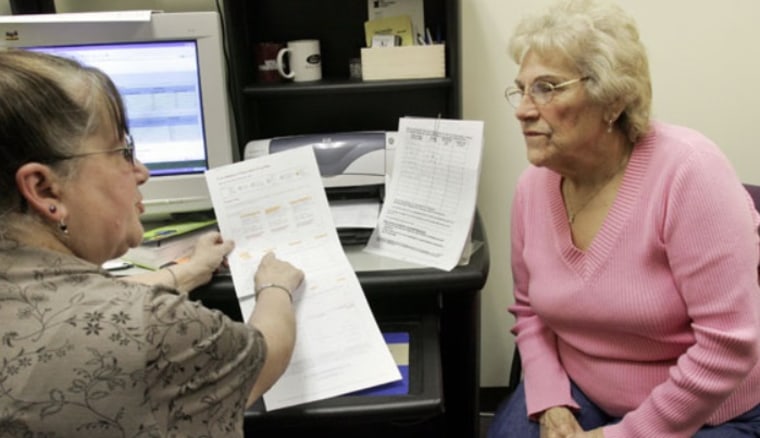
Raising the eligibility age for enrolling in Medicare won't produce nearly the cost savings that had been assumed previously, said a new report issued Thursday. The Congressional Budget Office analysis says that phasing in an increase in the eligibility age from 65 to 67 years old would lower the budget deficit by just $19 billion over the coming decade.
Raising the Medicare retirement age to 67, a move favored by deficit hawks in both parties, might at first seem to be a reasonable adjustment. Since we are all living much longer, the idea goes, we can afford to wait longer to become entitled to Medicare. But the premise is false. For fully half of the U.S. population (specifically the poor and working-class Americans with earnings at or below the median), life expectancy at 65 is virtually unchanged since the 1970s. In many parts of the country, including much the South, life expectancy at birth for black males is not yet even 65, and in some places it is as low as 59.
As with plans to voucherize Medicare, the primary effect of increasing the age of Medicare eligibility would be to shift costs onto needy individuals, while also leading to worse health outcomes. Nor, in the grander scheme of things, would the proposal save the government much money, since most Medicare spending is concentrated on people well over the age of 67, and many of the people who would be cut from the Medicare rolls would wind up on Medicaid or qualifying for other means-tested government subsidies. The Kaiser Family Foundation estimates that if the proposal were fully in effect in 2014 it would generate only about $5.7 billion in net federal savings but would impose twice as much cost ($11.4 billion) on individuals, employers, and states.
Similarly, the Center on Budget and Policy Priorities has tackled this, as has Paul Krugman, who described the proposal as “a terrible idea.”
First, the underlying notion -- Americans are living longer, so retirement programs should start later -- is true only of the upper half of the income distribution. Life expectancy for the other half has not risen much....
Second, raising the Medicare age would make America as a whole poorer -- because while it might save the government some money (and even that isn’t totally clear, because treatment of some conditions would be delayed and impose higher costs when people finally do get on Medicare), it would push people into higher-cost private coverage. Austin Frakt estimates $2 of private costs for every dollar of budget savings.
This is, in short, a very poor idea -- and obviously so. So naturally it’s hardening into orthodoxy among the VSPs.
I don't expect Republicans to drop this from their to-do list, but they should.